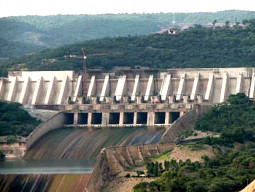
GILGIT:
Communities in the resource-rich Ghizer valley on Thursday vowed to stop the plunder of natural resources in their valley, to pass on the legacy that nature has bestowed on them to their next generation.
“Conservation of biodiversity and the natural habitat of several endangered species is everybody’s responsibility since the next generation has the right to experience the wetlands and see what markhors and snow leopards look like,” Saleem Khan, a resident of Gahkuch said on the occasion of World Wetlands Day.
Organised by WWF-Pakistan and Pakistan Wetlands Programme, the event attracted over 400 individuals, including students, teachers, government functionaries and NGO officials in the main town of Ghizer valley.
A ‘Wetlands Nature Walk’ was organised in Gahkuch town and a speech and drawing competition was held for students. Two students each from ten schools were selected to participate in the speech and art competitions held on the ‘Role of high altitude wetlands for promotion of tourism in Gilgit-Baltistan (G-B)’. A jury selected the best debaters and artists for 1st, 2nd and 3rd position.
“The purpose of this event was to highlight the socio-economic and ecological importance of high-altitude wetlands and sensitise local communities and other stakeholders to manage these resources,” said Farasat Ali, a senior WWF official, who organised the event. Every year, February 2 is celebrated as World Wetlands Day across the globe to raise awareness about the importance of wetlands and associated biodiversity. The theme for World Wetlands Day 2012 is “Wetlands and Tourism”.
He said the day was extremely important for G-B as most communities are settled either adjacent to or along major river banks but they are not fully aware of the threats to the fragile high-altitude wetland ecosystem.
The challenge lies in exploiting its tourist potential while protecting it from degradation. “Though these freshwater bodies offer great tourism opportunities like camping, fishing, bird watching, scenic beauty and water sports, at the same time they are threatened due to excessive resource exploitation and unmanaged tourism,” he said.
Experts believe that misuse of natural resources resulting in socio-economic and ecological repercussions is damaging the ecosystem of the mountains.
Published in The Express Tribune, February 3rd, 2012.
COMMENTS (1)
Comments are moderated and generally will be posted if they are on-topic and not abusive.
For more information, please see our Comments FAQ






































Thank you tribune and Sabir Mir for their efforts in environmental journalism